
Mina Anna Maria MazziniOMRI, Mina Anna Quaini, known as Mina Mazzini or simply Mina, is an Italian-Swiss singer and actress. She was a staple of television variety shows and a dominant figure in Italian pop music from the 1960s to the mid-1970s, known for her three-octave vocal range, the agility of her soprano voice, and her image as an emancipated woman.

Nicola Di Bari is an Italian singer-songwriter and actor. He is considered one of the "sacred monsters" of Italian pop music.
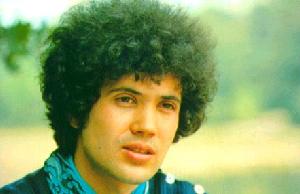
Lucio Battisti was an influential Italian singer-songwriter and composer. He is widely recognized for songs that defined the late 1960s and 1970s era of Italian songwriting.

Gino Paoli is an Italian singer-songwriter. He is a seminal figure who has written a number of songs widely regarded as classics in Italian popular music, including: "Il cielo in una stanza", "Che cosa c'è", "Senza fine", "Quattro amici al bar" and "Sapore di sale".

Giulio Rapetti, in art Mogol, is an Italian music lyricist. He is best known for his collaborations with Lucio Battisti, Gianni Bella, Adriano Celentano and Mango.
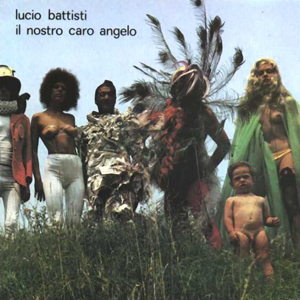
Il nostro caro angelo is an album by the Italian singer and songwriter Lucio Battisti. It was released in September 1973 by Numero Uno and was Italy's second-best selling album in 1973, the first being Battisti's previous album, Il mio canto libero.

Tony Renis, stage name of Elio Cesari, is an Italian singer, composer, music producer and film actor.

Giovanni Bella, best known as Gianni Bella, is an Italian composer and singer-songwriter.

Adriano Pappalardo is an Italian singer, actor and television personality.
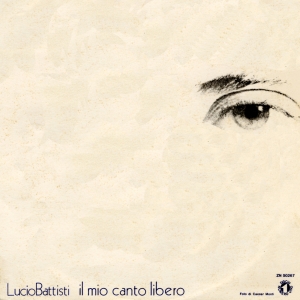
"Il mio canto libero" is a song written by Italian singer-songwriter Lucio Battisti and lyricist Mogol. The song was recorded by Battisti for the album of the same title, and released as a single in November 1972 for Mogol's recording label Numero Uno. The song was a commercial success in Italy, topping the Musica e dischi singles chart in 1973 and becoming the third best-selling single of the year. During the following years, it was covered by several artists, and it became a classic of Italian popular music. It was certified platinum by the Federation of the Italian Music Industry in 2021, for domestic equivalent sales exceeding 70,000 units since 2009.
Leda Battisti is an Italian singer-songwriter.

I Camaleonti are an Italian pop group from Milan, mostly active between the late 1960s and the early 1970s.

"Amarsi un po'" is a song composed by Lucio Battisti and Mogol, and performed by Lucio Battisti. It was released as a single in March 1977, with "Sì, viaggiare" as B-side. The single peaked at first place ten weeks on the Italian hit parade and was the most sold single of the year in Italy. The same year Battisti released an English version of the single for international markets, with the two songs renamed "To Feel in Love" and "Keep on Cruising" and with lyrics by Peter Powell. They were included in the album Images.

Formula 3 is an Italian pop-rock musical group, mainly successful in the early seventies.

Bruno Mario Lavezzi is an Italian singer-songwriter, composer, record producer and guitarist.
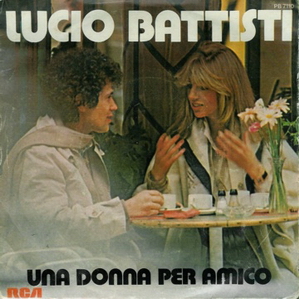
"Una donna per amico" is a song composed by Lucio Battisti and Mogol, and performed by Lucio Battisti. It was released as a single in October 1978, with "Nessun dolore" as B-side. The single peaked at first place fourteen consecutive weeks on the Italian hit parade between November 1978 and February 1979. It was the second most sold single of the year in Italy, behind Bee Gees' "Stayin' Alive".
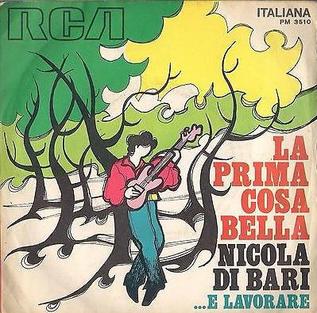
"La prima cosa bella" is a song composed by Nicola Di Bari and Mogol. The song ranked second at the twenth edition of the Sanremo Music Festival, with a double performance by Nicola Di Bari and Ricchi e Poveri.

Gaetano Cristiano Vincenzo Rossi, best known as Christian, is an Italian singer, mainly successful in the first half of the 1980s.
Beans are an Italian pop music group, mainly successful in the seventies.

















